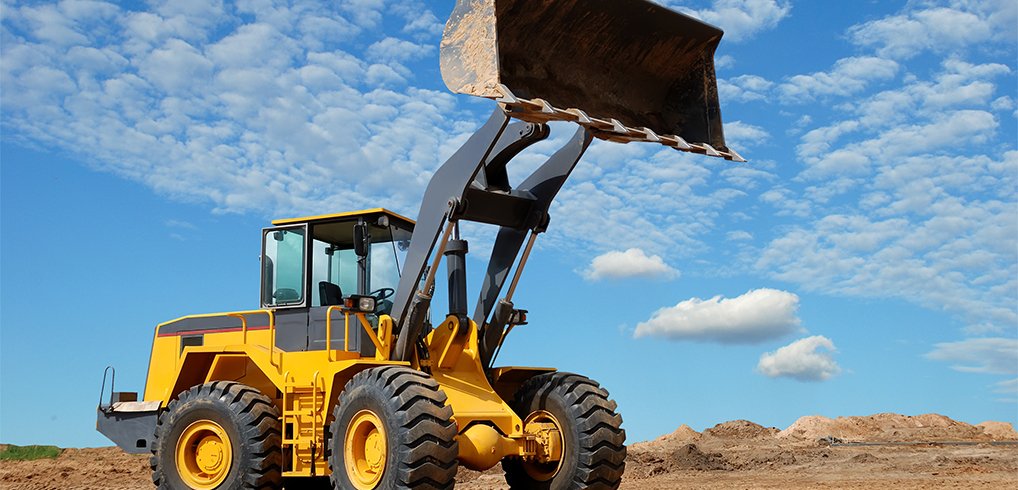
How to Tell When Your Heavy Duty Equipment Needs Lubrication

Heavy equipment operators must do an inspection every day before they start their work. These machines must operate under demanding and severe conditions, including handling heavy loads and working in rough weather.
Start with a visual check to be sure that nothing is broken or damaged, and note any unusual wear and tear. During these inspections, remember to check the lubrication of the machine, including the engine, hydraulic system, and coolant system. Keeping your equipment properly lubricated means it will be ready for action when needed.
Equipment that doesn’t get proper lubrication can suffer serious damage from metal-on-metal contact. Joints, links, and moving parts require oil to work correctly. It allows for smooth and frictionless movement and protects against wearing and heat damage.
How to Check Your Lubrication
Not all grease levels can be checked with the eye. For some lubrication inspection, you’ll need to check the drawing. If you are not sure where they are, check the equipment’s user manual.
Heavy Construction Equipment Lubrication Components
Making sure that your machinery is properly lubricated is an essential part of the job. Doing this requires you to understand some of the components and key elements of heavy construction equipment.
Engine Oil
Your machine’s engine oil system has been designed to circulate clean oil around the moving parts to keep everything running well.
The oil’s journey around the engine system starts in the engine oil’s sump, which is in a pan below the engine body. This oil enters the system through a pump, which draws up the oil and pushes it through an oil filter. Oil will lubricate the teeth of the opposing gears as they are turning. The filter keeps impurities out of the system.
Having the proper thickness of oil offers a layer of protection that reduces friction and damage to the system.
Suspension System
Another key element of your machine that needs lubrication is the suspension system. Often, the suspension system, drivelines, and vehicle chassis are done at the same time. Each of these are separate from the engine oil system, and need to be checked and lubricated regularly. Doing this ensures that the equipment undercarriage moves smoothly and there is minimal wear and tear on your machine.
One thing to note is that it can take up to an hour each day to check and properly lubricate these systems. However, by opting to automate lubrication systems, you can save on time and money. Use manual lubrication methods for smaller equipment or points that are not accessible by machine. Automating this process can also protect workers from safety hazards.
Hydraulic System
Your equipment’s hydraulic system pushes force along hoses and lines that allows the heavy end of the machine to operate, whether it is a dozer blade or excavator bucket. Using oil allows the pressure to be moved at a constant rate throughout. This is necessary when you have heavy jobs and need your machines in their best working order.
Coolant System
The reality is that your equipment produces waste heat. Your coolant system removes the waste in an efficient and safe way. To do this, the coolant system needs to transfer heat away from the engine block; this prevents the engine from overheating. The system uses a pump that circulates water and coolant around the engine block.
As this mixture interacts with the hot engine, it draws the heat away. Then, it moves through a hose into the radiator at the front of the machine. Water traveling through this system will get rid of heat with the help of fans or the movement of air through the front grill.
Viscosity
The Society of Automotive Engineers (SAE) issues viscosity grades for engine oils. These grades refer to the temperature range that the oil will perform at its best. If the viscosity grade has a “W” at the end, this means it is suitable for cold-weather use. Heavier oil does not flow well in colder weather, and may not provide adequate protection against wear and tear.
In warmer weather, equipment needs a heavier grade as the warm temperatures can cause the equipment to heat up faster. These products allow for a good lubricant flow and protection for higher temperatures.
Oxidation/Aeration
Something else that heavy equipment operators need to be aware of is how lubricants act in response to thermal and oxidative breakdown. Some lubricants can break down when exposed to oxygen. Oxidation can cause problems including increased oil viscosity, sludge buildup, and even corrosive acid formation.
Aeration can be a challenge for off-highway engines. These machines are more likely to have air bound within the oil. This scenario can pose problems as components like bearings need the protection of oil around them. This can lead to troubles with boundary lubrication, which is the thin film of oil that prevents damage from metal-to-metal contact.
Greasing Your Equipment
Here are some tips for applying lubrication to your heavy equipment:
- Load a grease gun with the grease that is suggested by the manufacturer.
- Find the grease points on your machine.
- Check to be sure there is no damage to the application area.
- Before you apply it, wipe down the grease point to remove any dirt.
- Pump some grease into the point until it is full.
Wrapping it Up
Greasing your heavy equipment daily can have a significant long-term impact on your machine’s performance, function, and longevity. Consider taking a few extra minutes to do this, and you’ll be able to save money on repairs and replacements.
For more information about taking care of your heavy construction equipment in B.C., call Nors Equipment at 888-492-4365 or contact us here.



